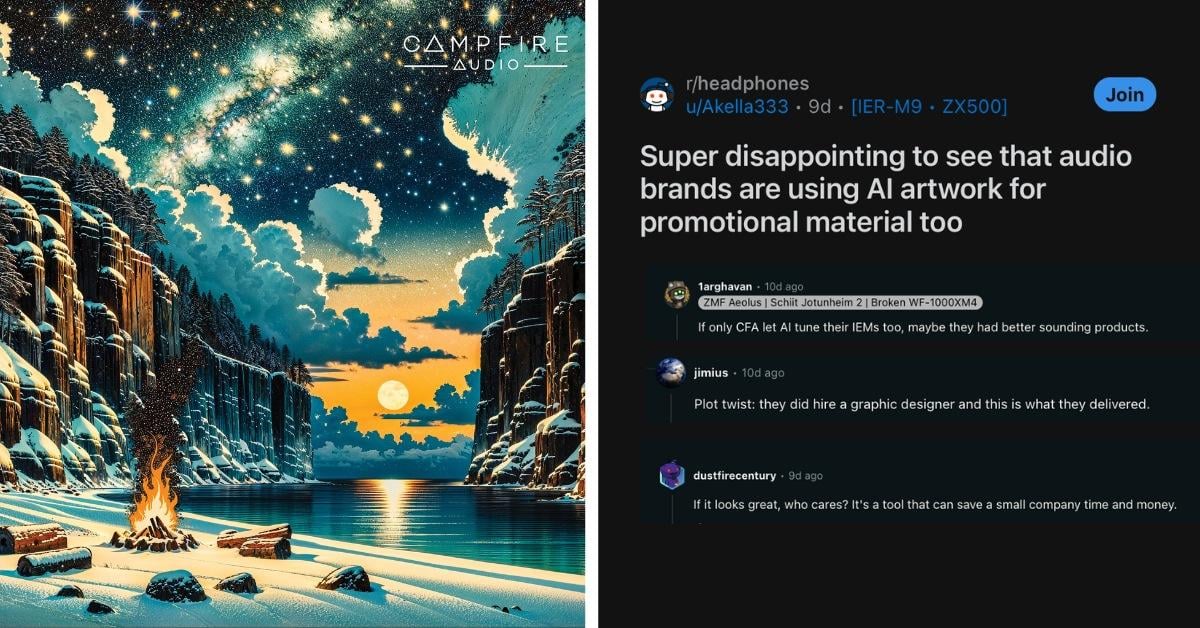They argued that they still edited the artwork, but does it make this ok?
Campfire Audio is currently under fire as online users express disappointment over the company’s use of AI-generated artwork in its promotional material.
The discussion started on the popular r/headphones subreddit, where Akella333 expressed disappointment over the artwork.
“I’m against it because it’s using stolen people’s work. It’s only ever used to cut corners and avoid hiring real people and artists, which is always executed with weird errors and terrible quality in general.
There is just nothing good that comes of it, it’s just another tool for corporations to profit from while abusing the copyright system. I don’t want the future of entertainment and media to be this, I want actual authentic art made by real people, not to be cheated by a robot.” says Akella333 in one of their responses.
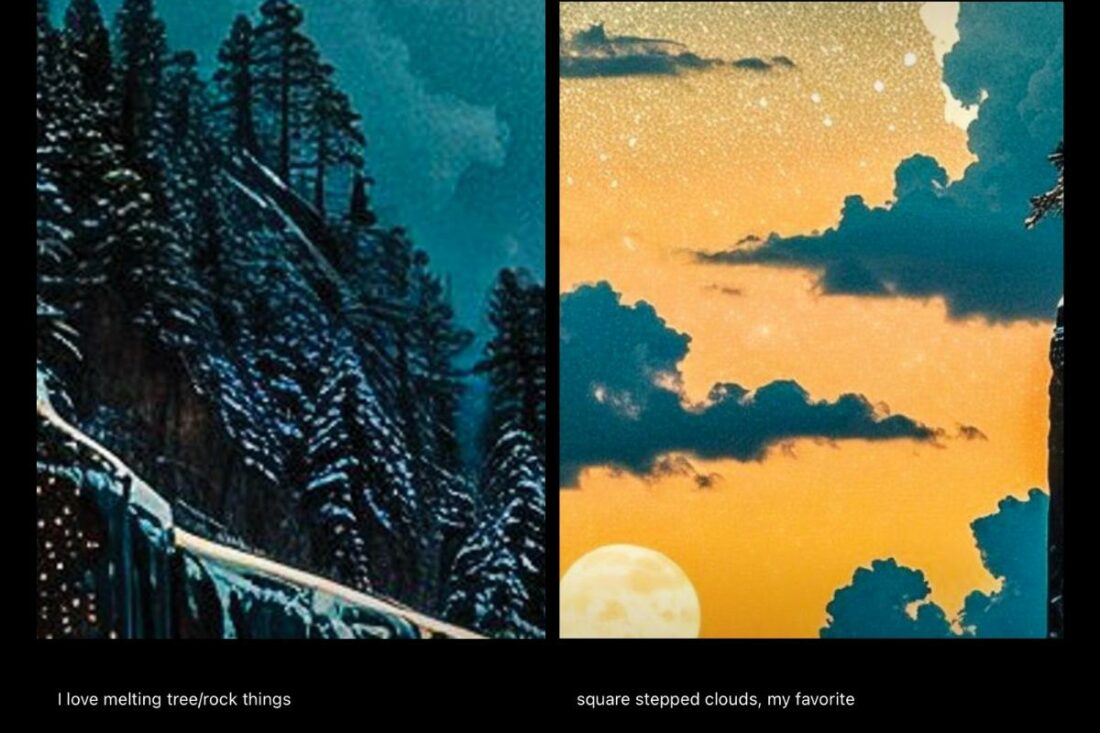
This art was featured in an opening post for a Campfire Audio thread on Head-fi.org.
Mixed Reactions from the Community
As expected, opinions were divided on the matter. Concerns about the broader implications of relying on AI for creative endeavors were raised. Some users fear that using AI-generated artwork may correlate to a decline in product quality.
Some artists also chimed in. Reddit user itisnteden pointed out two issues with AI art. First, it encroaches on a unique human ability: creativity, which machines traditionally can’t replicate. Second, it breaches copyright laws globally by indiscriminately sourcing content from the internet.
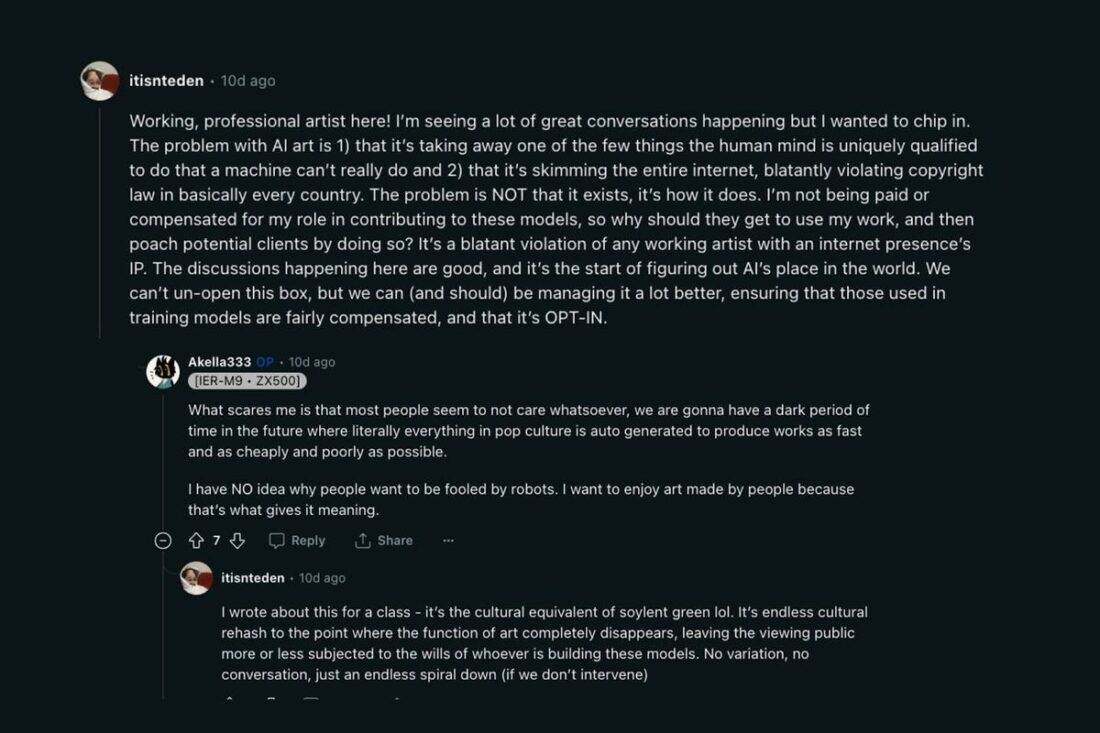
Others are mocking Campfire Audio. They imply that their quality would’ve been better if they used AI for their tuning as well.

On the other hand, some people say they do not think this incident is a big deal for Campfire. Most of them highlight that this was just done for a forum post anyway and not for anything they can earn money from.
One user also defended the company’s track record. He emphasized that Campfire has consistently employed numerous artists and designers for various projects. This includes packaging and past promotional materials.
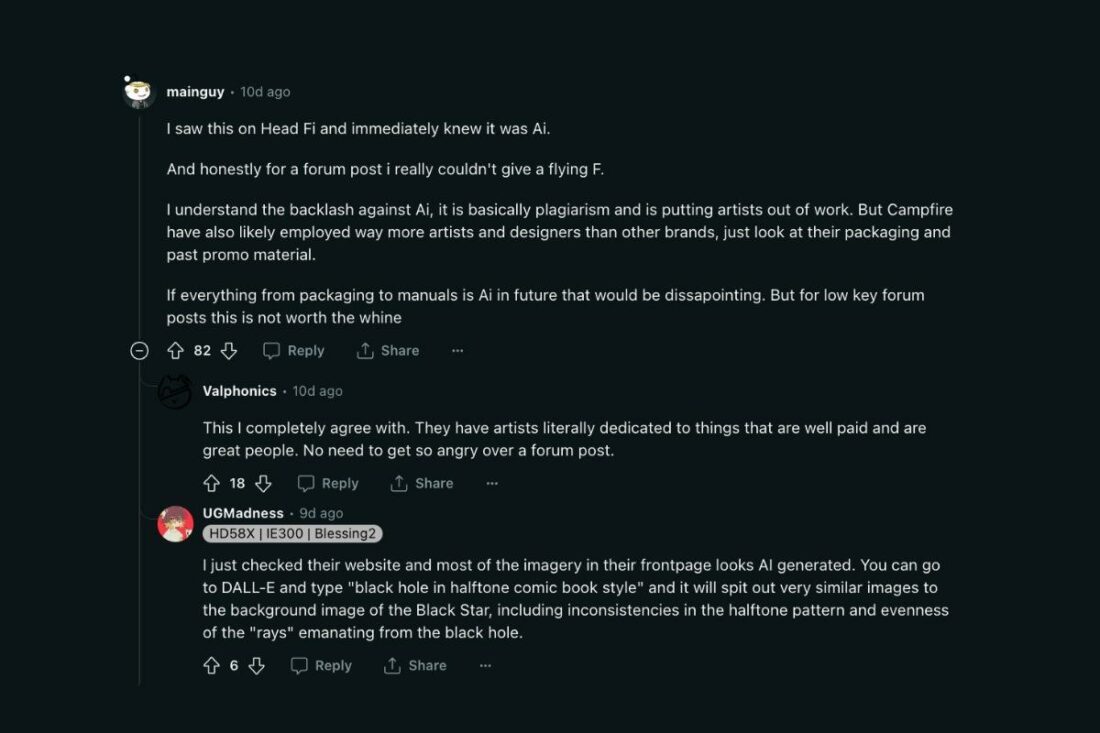
However, this was soon dismissed by the responses. User UGMadness pointed out that most of the images Campfire Audio has used also look like they’re AI-generated.
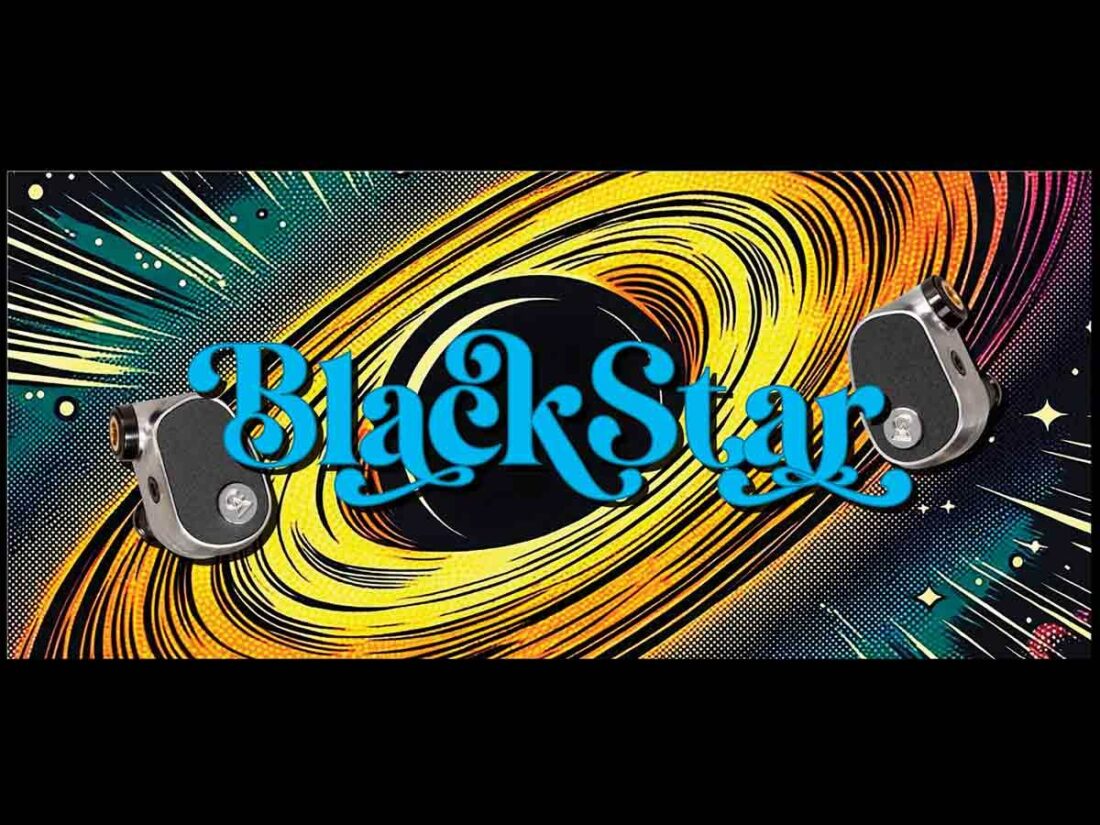
Campfire Audio Confirmed the Usage of AI Art
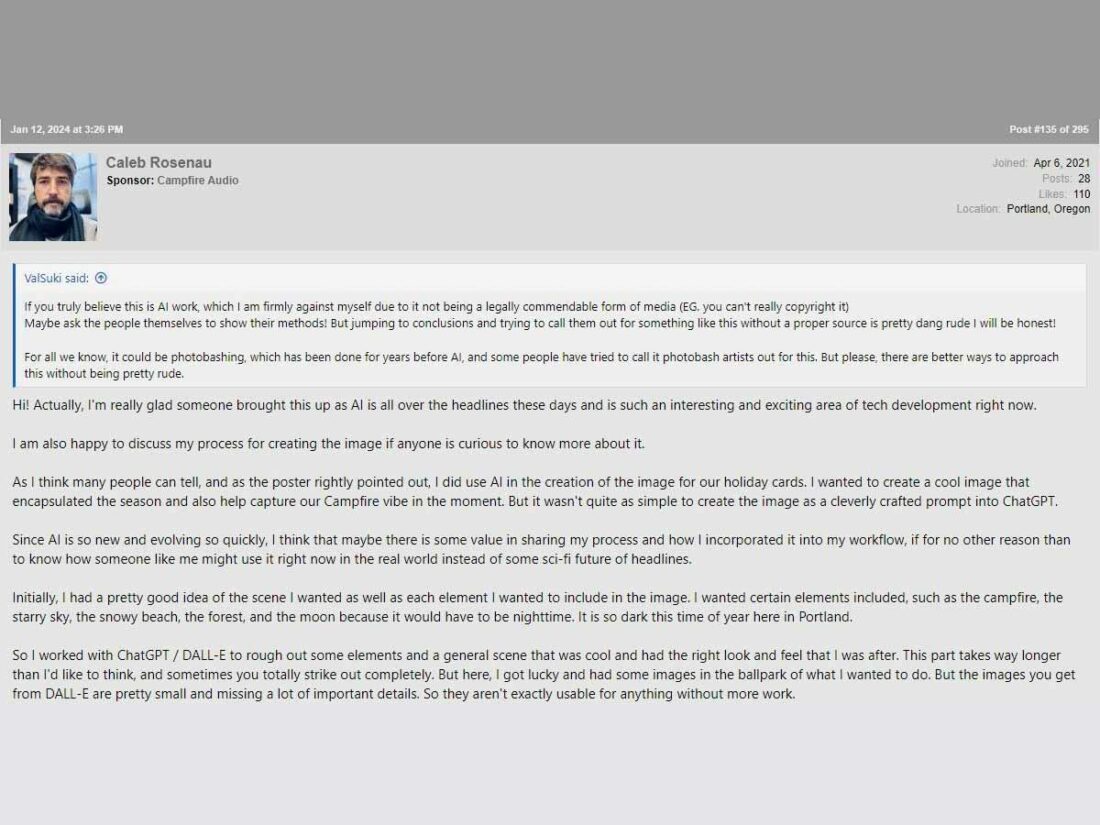
Caleb Rosenau, the Vice President of Campfire Audio, stepped into the discussion. In a post on a Head-Fi chat forum, Rosenau confirmed the use of AI in crafting a holiday card poster for the company.
Rosenau also addressed the critique of a perceived lack of effort. He clarified that there was still an artistic input involved. He mentioned that he worked with AI tools such as ChatGPT/DALL-E and further refined the image using Photoshop.
Once satisfied with the result, he added that he undertook steps to prepare the image for the Risograph printing process.
Rosenau emphasized that, despite utilizing AI tools, his love for analog processes remains unwavering. He firmly stated that he saw no need to choose between traditional and AI-driven methods. Lastly, he suggested a coexistence that allows innovation without sacrificing artistic integrity.
Using AI for Creatives Continues to Stir Debate
Campfire Audio’s use of AI art mirrors the ongoing debate about the role of artificial intelligence in creative processes. Advocates believe AI enhances efficiency and sparks creativity. Opponents, on the other hand, raise concerns about its potential negative impacts.
A central issue involves AI tools appropriating work from uncredited, unpaid artists. These artists’ contributions unwittingly become the foundation for AI-generated art, often without their consent.
Real-life examples highlight the legal complexities surrounding AI-generated art and artists’ challenges when seeking recognition and remuneration.
In a case reported by The Hollywood Reporter, a class-action lawsuit was filed against AI companies by visual artists Sarah Anderson, Kelly McKernan, and Karla Ortiz. However, U.S. District Court Judge William H. Orrick dismissed much of the lawsuit, citing the absence of copyright registration for the cited artworks.
As technology advances, questions about ethics, authenticity, and proper attribution persist, creating a complex debate that demands careful and thoughtful consideration.
